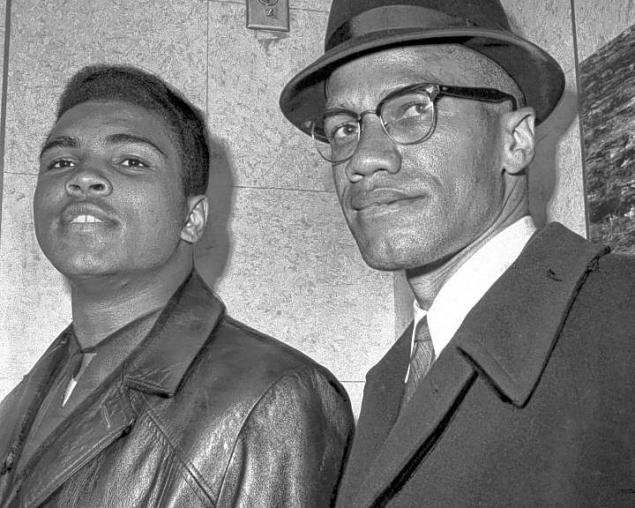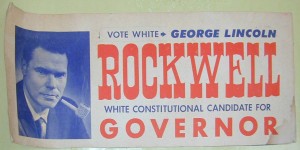When bitterly trying to push buttons, Malcolm X said some ridiculous and hurtful things. But I think he said as many startlingly true things as any American in the second half of last century. He was at his best and worst in a 1963 Playboy interview, which was conducted by Alex Haley. An excerpt:
“Playboy:
You say that white men are devils by nature. Was Christ a devil?
Malcolm X:
Christ wasn’t white. Christ was a black man.
Playboy:
On what Scripture do you base this assertion?
Malcolm X:
Sir, Billy Graham has made the same statement in public. Why not ask him what Scripture he found it in? When Pope Pius XII died, LIFE magazine carried a picture of him in his privatestudy kneeling before a black Christ. What was the source of their information? All white people who have studied history and geography know that Christ was a black man. Only the poor, brainwashed American Negro has been made to believe that Christ was white, to maneuver him into worshiping the white man. After becoming a Muslim in prison, I read almost everything I could put my hands on in the prison library. I began to think back on everything I had read and especially with the histories, I realized that nearly all of them read by the general public have been made into white histories. I found out that the history-whitening process either had left out great things that black men had done, or some of the great black men had gotten whitened.
Playboy:
Would you list a few of these men?
Malcolm X:
Well, Hannibal, the most successful general that ever lived, was a black man. So was Beethoven; Beethoven’s father was one of the black moors that hired themselves out in Europe as professional soldiers. Haydn, Beethoven’s teacher, was of African descent. And Solomon. Great Biblical characters. Columbus, the discoverer of America, was a half-black man. Whole black empires, like the Moorish, have been whitened to hide the fact that a great black empire had conquered a white empire even before America was discovered. The Moorish civilization–black Africans–conquered and ruled Spain; they kept the light burning in Southern Europe. The word ‘Moor’ means ‘black,’ by the way. Egyptian civilization is a classic example of how the white man stole great African cultures and makes them appear today as white European. The black nation of Egypt is the only country that has a science named after its culture: Egyptology. The ancient Sumerians, a black-skinned people, occupied the Middle Eastern areas and were contemporary with the Egyptian civilization. The Incas, the Aztecs, the Mayans, all dark-skinned Indian people, had a highly developed culture here in America, in what is now Mexico and northern South America. These people had mastered agriculture at the time when European white people were still living in mud huts and eating weeds. But white children, or black children, or grownups here today in America don’t get to read this in the average books they are exposed to.
Playboy:
Can you cite any authoritative historical documents for these observations?
Malcolm X:
I can cite a great many, sir. You could start with Herodotus, the Greek historian. He outright described the Egyptians as ‘black, with woolly hair.’ And the American archaeologist and Egyptologist James Henry Breasted did the same thing. Read Pliny. Read any of the ancient Roman, Greek and, more recently, European anthropologists and archaeologists.”



